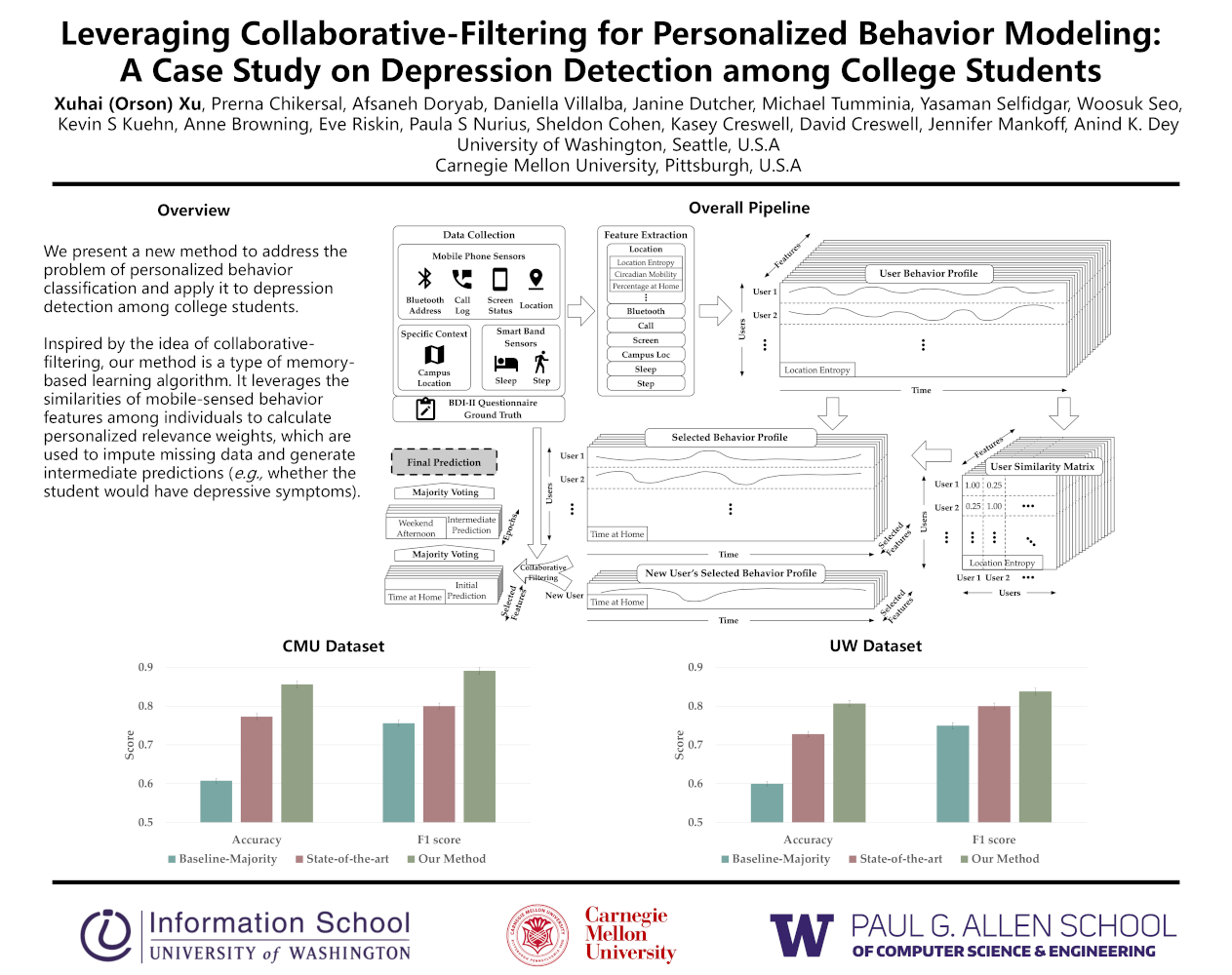
Leveraging Collaborative Filtering for Personalized Behavior Modeling: A Case Study on Depression Detection among College Students
We present a new method to address the problem of personalized behavior classification and apply it to depression detection among college students. Inspired by the idea of collaborative filtering, our method is a type of memory-based learning algorithm. It leverages the similarities of mobile-sensed behavior features among individuals to calculate personalized relevance weights, which are used to impute missing data and generate intermediate predictions (e.g., whether the student would have depressive symptoms).
This project has undergraduate student research opportunities.
Xuhai (Orson) Xu
Prerna Chikersal
Afsaneh Doryab
Daniella Villalba
Janine Dutcher
Michael Tumminia
Yasaman Selfidgar
Woosuk Seo
Kevin S. Kuehn
Anne Browning
Eve Riskin
Paula S. Nurius
Sheldon Cohen
Kasey Creswell
David Creswell
Jennifer Mankoff
Anind K. Dey
Projects in Human-Computer Interaction
- Leveraging Collaborative Filtering for Personalized Behavior Modeling: A Case Study on Depression Detection among College Students
- On the Steppe: Plain Talk Imagining Technology Used Wisely
- Using Everyday Routines for Understanding Health Behaviors
- When Screen Time Isn’t Screen Time: Tensions and Needs Between Tweens and Their Parents During Nature-based Exploration
- Falx: Synthesis-Powered Visualization Authoring
- What Makes People Join Conspiracy Communities? Role of Social Factors in Conspiracy Engagement
- Visually Encoding Personal Data for Vulnerable Populations
- Who Are You Asking?: Qualitative Methods for Involving AAC Users as Primary Research Participants
- Where Are My Parents?: Information Needs of Hospitalized Children
- Parenting with Alexa: Exploring the Introduction of Smart Speakers on Family Dynamics
- “Eavesdropping”: An Information Source for Inpatients
- Detecting Depression and Predicting its Onset Using Longitudinal Symptoms Captured by Passive Sensing: A Machine Learning Approach With Robust Feature Selection
- Mobile Assessment of Acute Effects of Marijuana on Cognitive Functioning in Young Adults: Observational Study
- Telling Stories: On Culturally Responsive Artificial Intelligence
- What Makes People Join Conspiracy Communities?: Role of Social Factors in Conspiracy Engagement
- Early adopters of a low vision head-mounted assistive technology
- Being (In)Visible: Privacy, Transparency, and Disclosure in the Self-Management of Bipolar Disorder
- Visualizing Personal Rhythms: A Critical Visual Analysis of Mental Health in Flux
